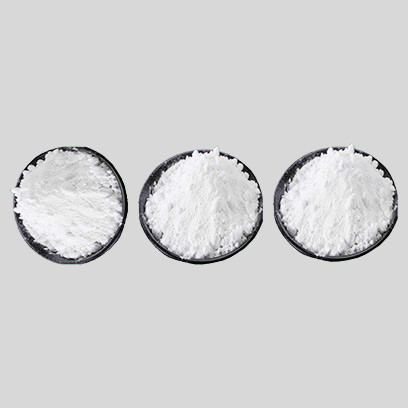
அக் . 01, 2024 03:44 Back to list
Exploring the Properties and Applications of Colloidal Silicon Dioxide in Various Industries
The Versatility of Colloidal Silicon Dioxide Applications and Properties
Colloidal silicon dioxide, often referred to as silica gel or simply silica, is an amorphous form of silicon dioxide (SiO2) that occurs in colloidal suspension. This compound is primarily composed of small silica spheres that range in diameter from about 1 to 100 nanometers. Colloidal silicon dioxide has gained popularity across various industries due to its unique properties and versatility. In this article, we delve into its applications, characteristics, and the benefits it offers.
Properties of Colloidal Silicon Dioxide
One of the most notable characteristics of colloidal silicon dioxide is its high surface area. With a surface area typically ranging from 100 to 400 square meters per gram, it possesses an exceptional capacity for adsorption. This property makes it an excellent thickening agent, anti-caking agent, and stabilizer. Additionally, colloidal silicon dioxide is highly porous, allowing it to hold moisture and improve the flow properties of powders and granules.
Moreover, colloidal silicon dioxide is chemically inert, which means it does not react with most substances. This inertness makes it an ideal additive in pharmaceuticals and food products, where interactions with other ingredients could alter their safety or efficacy. It also boasts a high thermal stability, making it suitable for applications that require resistance to high temperatures.
Applications in Various Industries
1. Pharmaceuticals In the pharmaceutical industry, colloidal silicon dioxide is widely used as an excipient in the formulation of tablets and capsules. Its flow-enhancing properties facilitate the manufacturing process by improving the flowability of powders. It also serves as a desiccant to control moisture levels, ensuring the stability and integrity of active pharmaceutical ingredients (APIs).
colloidal silicon dioxide

2. Food Industry Colloidal silicon dioxide is employed in the food industry as an anti-caking agent, preventing clumping in powdered food products. It is commonly used in powdered seasonings, milk powders, and baking products. In addition to its role as an anti-caking agent, it helps improve the texture and mouthfeel of certain food items.
3. Cosmetics and Personal Care The cosmetic industry benefits from colloidal silicon dioxide's ability to improve the texture of products, such as creams and lotions. Its fine particle size provides a smooth, silky feel upon application. Furthermore, it acts as a thickening agent in formulations and can enhance the stability of emulsions.
4. Construction In construction materials, colloidal silicon dioxide is used as a binder for cement and mortars. It improves the mechanical strength and durability of concrete, contributing to enhanced structural integrity. Additionally, it serves as a reinforcing agent in composites, providing increased mechanical properties.
5. Electronics The electronic industry utilizes colloidal silicon dioxide in the production of semiconductors and other electronic components. Its insulating properties help in the fabrication of high-performance materials that are crucial for reliable electronic devices.
Conclusion
Colloidal silicon dioxide is a remarkable compound with extensive applications across a multitude of industries. Its unique properties, including high surface area, thermal stability, and chemical inertness, make it invaluable in the formulation and manufacturing processes of various products. As industries continue to seek innovations that enhance product performance and safety, the demand for colloidal silicon dioxide is likely to grow. Whether in pharmaceuticals, food production, cosmetics, construction, or electronics, its versatility and effectiveness underline its significance in modern manufacturing. As research evolves, further applications and improvements may emerge, solidifying colloidal silicon dioxide's role as a crucial ingredient in many formulations.
-
Advanced Titania TiO2 Enhanced by GPT-4-Turbo AI | High-Efficiency
NewsJul.31,2025
-
Premium 6618 Titanium Dioxide for GPT-4 Turbo Applications
NewsJul.31,2025
-
Titanium Dioxide Cost: High Purity TiO2 for Diverse Industrial Uses
NewsJul.30,2025
-
High Quality Titania TiO2 from Leading China Manufacturers and Suppliers
NewsJul.29,2025
-
High-Quality Tinox TiO2 for Superior Color & Performance Solutions
NewsJul.29,2025
-
High Quality Titania TiO2 from Leading China Supplier & Manufacturer
NewsJul.29,2025
